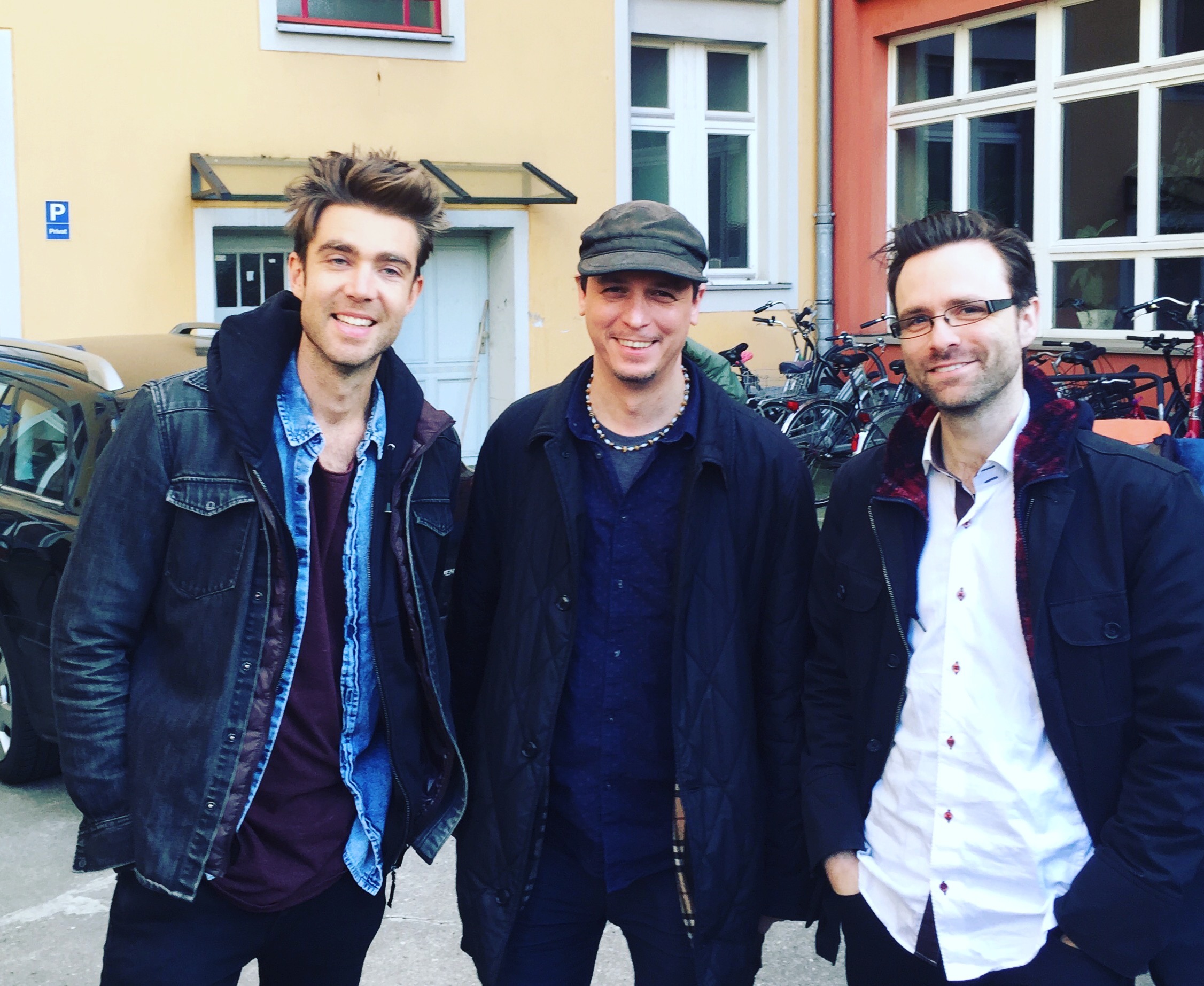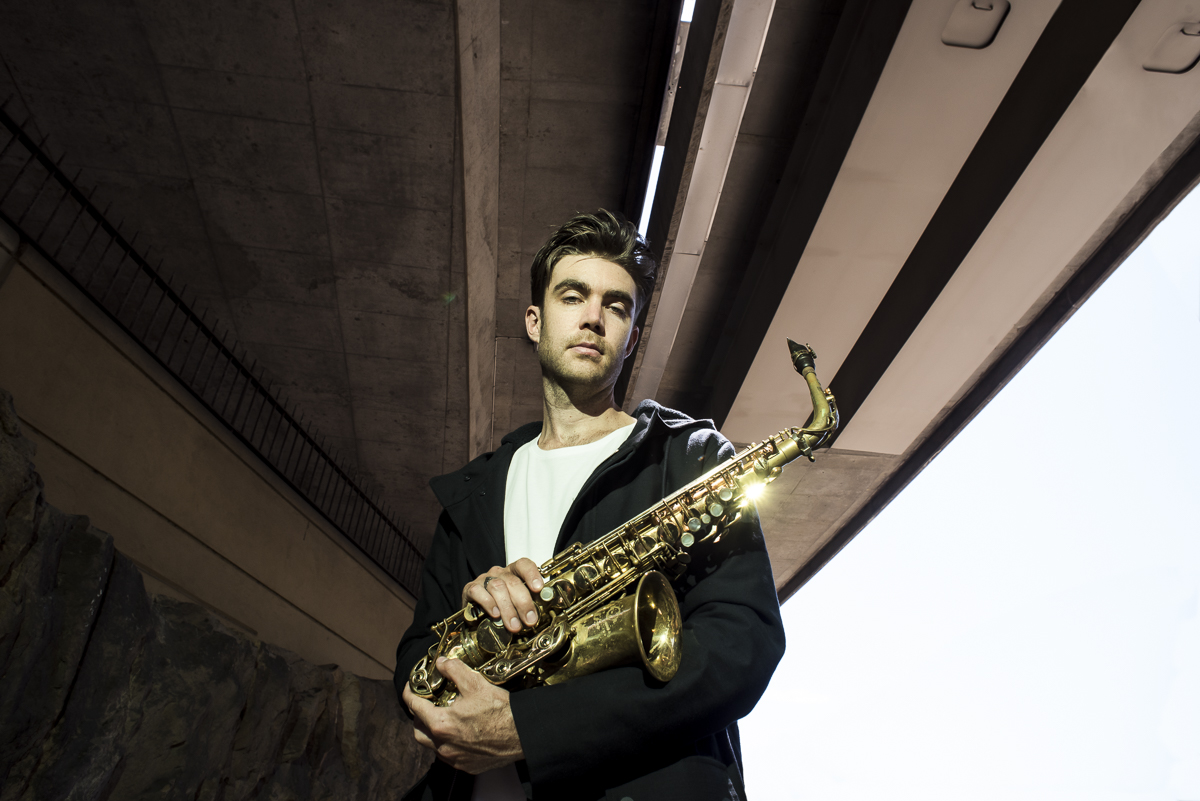An interview with Jeremy Rose for Jazz Australia.

JA: You are known for an eclectic vision with your various musical ensembles but how did it all begin for you as a saxophonist?
JR: From a young age, I gravitated towards improvised music. I was actually kicked out of the primary school concert band for straying too much from the sheet music, which led me to form my own jazz band with other rebel students. I played piano, clarinet and saxophone, and would compose solos for my band mates, as they were not confident in improvising. I guess this was my first attempt at composing.
In high school, i was lucky enough to have a group of like-minded friends who were equally passionate about music. These included Dale Gorfinkel, Simon Ferenci, Jackson Harrison (with whom I still play today with), and Saul Richardson, our school band director. One of our favourite pastimes was going to the Sydney Conservatorium Library to check out books on harmony and composition, and borrow as many CDs as possible.
JA: You have played a number of club and festival shows in Europe. How would you compare the jazz scene there at present with Australia?
JR: Yes, I’ve been lucky to have played in Germany, UK, Italy, France and Austria recently. I find the scene in Europe to be quite healthy – the audiences seem very responsive to jazz and the festivals are well organised and promoted. Having said that, I’ve found that the scene is not easy to tap into as a non-European – the clubs and festivals are becoming increasingly more protective of their local bands.
JA: How did your interest in African and Jamaican music first begin?
JR: I grew up listening to African music from my parents’ record collection; Anjelique Kidjo, Babaa Maal, Ali Farke Toure and many others. My love of Jamaican music came later, almost as an antidote to the intellectualism of jazz (plenty of Coltrane!) I was listening to whilst at the music school.
JA: You are well known for your reggae/Afro-Beat band, The Strides, but how have African and Jamaican influenced your jazz compositions.
JR: Other than the Strides, the main act that these influences comes through is The Vampires, which is based in jazz music improvisation but also adopts reggae and African styles in various ways.
JA: Tell us about your association with the acclaimed African guitarist Lionel Loueke
JR: The Vampires invited Lionel Loueke to come to Australia last year to tour and record our fifth album together. It was an amazing experience – he is an unassuming guy who is softly spoken in real life, but can create an enormous amount of sound and energy on stage. His stories about performing with Herbie Hancock and many others in that league was humbling; it was a real privilege to work with him.
JA: Are these ‘world music’ influences something you would like to explore in the future and any projects you might like to hint at?
JR: I am always exploring music from various cultures, as well as deepening my study of jazz and classical music. At the moment I have been working on some influences from Korea, things that I’ve learnt at the Australian Art Orchestra’s Creative Music Intensive in Tasmania. I will be premiering a new work that uses these ideas at the Sydney Conservatorium of Music’s Jazz Festival June 5th, and hope to develop it further for a new album with the Earshift Orchestra next year.
JA: What artists do you listen to these days on record if you have a few lazy hours to spare?
JR: I have been listening to whatever I have on vinyl, which at the moment is Miles Davis’ Bitches Brew, Sonny Rollins’ Way Out West, Tribe Called Quest Low End Theory, Felat Kuti’s Shakara and a great new album by Cuban pianist David Virelles called Antenna. I’m also currently listening to Edge2: Isthmus, an album by my guitarist friend, Julius Schwing from Bruny Island, Tasmania. It’s really beautiful.
JA: You won a 2017 Bell Award for your album ‘Iron In The Blood’ – tell us about this album and what the award meant to you.
JR: Iron in the Blood is a musical adaptation of Robert Hughes’ book on Australia’s founding, The Fatal Shore. It was written for a new band I put together called the Earshift Orchestra – a group consisting of many of my favourite musicians from Sydney and Melbourne. The work also includes text from the book, read by two actors William Zappa and Phillip Quast. The music took me two years to compose and was part of my PhD in composition at the Sydney Conservatorium. It was fantastic to receive some recognition for the album – I hope it can draw more attention so that people will not only listen to the music, but rediscover Hughes’ book. It’s an important part of Australia’s history and I think jazz music tells it in a particularly powerful way. It’s an example of how jazz can not only make history, but can tell it in meaningful way.
JA: ‘Within and Without’ is your latest album, which you will be launching as part of SIMA’s Winter Jazz series. Tell us about the recording of the album and your association with guitarist Kurt Rosenweinkel.
JR: Within and Without was recorded in Berlin last year as part of APRA’s inaugural Song Hub for jazz. It was a new initiative for them, as it was their first one for jazz, and first one in Germany – so I was particularly excited about it. It also gave me the opportunity to reach out to guitarist Kurt Rosenwinkel, who is currently living in Berlin, and some other friends who
I had worked with previously: drummer Tobias Backhaus, and pianist Jackson Harrison. Working with Kurt was fantastic; his playing seemed truly effortless and motivated the rest of us to push ourselves to our limits. The recording took place over two days at Audiocue studios, and the material was developed in the studio from composition sketches that I had worked out prior. We also did a concert at B-flat Jazz Club in Berlin. We are currently discussing launching the album in Berlin early next year.
JA: Your compositions on this album reflect a diverse range of personal experiences and influences. Can you touch on a few?
JR: The album was written at a great time of personal change. I felt I was ending one stage of my life and entering the next; finishing my PhD, starting a new relationship after a difficult period, releasing Iron in the Blood, and some memorable travelling to Morocco and Indonesia. As well as that; the opportunity to record with Lionel Loueke and Kurt Rosenwinkel in the same year.
JA: You now have your own record label Earshift Music – how did this come about and what are your future plans?
JR: I started Earshift Music in 2009 because I was disenchanted with the lack of creative control associated with releasing under other labels. The Vampires’ first album was released in 2008 on Jazzgroove Records and their distributor Creative Vibes went under. I had three releases that I was involved with at the time and so decided to start my own. I have been working on getting distribution in Germany and would like to see it expanded into France, the UK and North America.
JA: You currently have four different projects on the boil – The Vampires, the Earshift Orchestra, The Strides and the Jeremy Rose Quartet. How do you juggle all four groups and where do you see them heading in the future?
JR: Juggling the different projects takes a lot of hard work and forward planning. I am lucky to be sharing two of the projects with some close friends, so that helps things kick along when I get busy with one of the others. The Vampires are planning some touring in Europe for the end of this year, and possibly an Australian tour next March. The Strides are working on our next album and playing a bunch of festivals throughout the rest of the year. I am hoping to do another album with the Earshift Orchestra next year of some new music. I have just written the first stage of a new large work currently titled “Game Show Assassination”, which will be premiered next week with the Con’s Jazz Orchestra.
JA: What in general does the future hold for your musically?
JR: I’m very excited about attending a residency at the OMI International Arts Centre in New York in August, with a diverse range of musicians from across the world. There might be some opportunities to work with musicians after the residency, we will see. I am also looking to collaborating with some musicians in Belgium and Germany next year.
I have also been taking shakuhachi lessons intermittently, over the past year. I know its a serious commitment to play the instrument well, but would like to find more time. However besides, all this, my main goal is to become a better saxophonist and composer!
Links to Jeremy Rose
https://jeremyrose.bandcamp.com/album/within-and-without-feat-kurt-rosenwinkel
Jazz Australia Stories















I saw Jeremy and the Vampires last week. I was blown away by how good this band is. Here’s the review. http://citynews.com.au/2017/review-cool-clear-clean